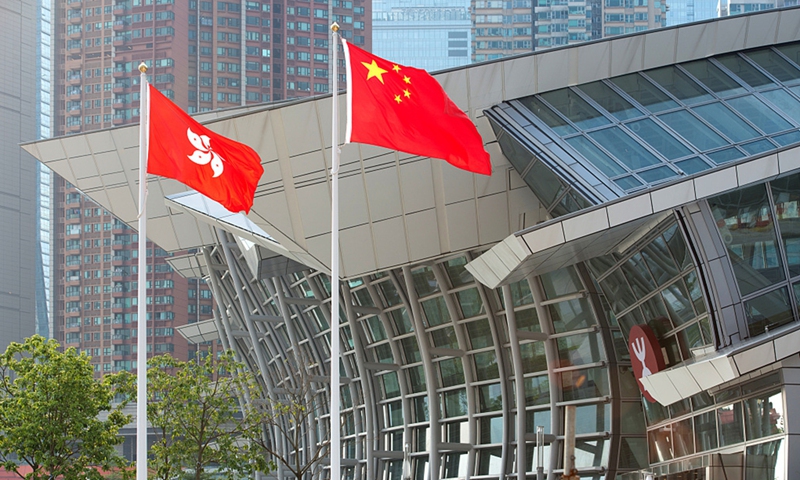
Hong Kong File photo
Hong Kong Special Administrative Region (HKSAR) Chief Executive Carrie Lam on Sunday brushed off foreign criticism and smearing of the city's financial industry, saying its role as a global financial hub has only become stronger.
Lam's comments came as some foreign media outlets and politicians have been predicting the end of Hong Kong's highly globalized financial industry after the city implemented a national security law almost a year ago.
At a financial summit held by ifeng.com, Lam also said that the HKSAR will further expand and improve its financial connectivity mechanisms with the Chinese mainland in order to grasp opportunities under national initiatives, including the Belt and Road Initiative and the Guangdong-Hong Kong-Macao Greater Bay Area.
"Hong Kong's 'golden name card' as the world's financial hub has not been scathed in the slightest degree in the past two years... as the city's financial system showed outstanding stability and resilience in a difficult time," said Lam.
She said that the Hong Kong dollar market recorded net inflows in 2020 while the city's total banking deposits rose by 5.4 percent in 2020 compared with 2019, and the liquidity and capital-adequacy ratios of major Hong Kong banks have been way above international supervisory standards.
Hong Kong's stock market has surged in recent months. From June 2020 to the present, the benchmark Hang Seng Index climbed about 22 percent to 28,801 points.
Xi Junyang, a professor at the Shanghai University of Finance and Economics, said that the prosperity of Hong Kong's stock market is mainly due to the stock link mechanisms between Hong Kong and the mainland, which have acted as an adjustment mechanism that protected both markets from experiencing volatility.
"The stock link mechanism provides a channel for Hong Kong and mainland investors to seek arbitrage between the two markets based on their valuation differences. It's like a seesaw that has balanced the Hong Kong market's liquidity level," he told the Global Times.
Xi also noted that since the Hong Kong market's IPO conditions are generally more flexible than those of the mainland, it's inevitable that the number of mainland companies listed in Hong Kong will further edge up.
Currently, more than half of the listed companies in Hong Kong are based in the mainland, and they account for about 80 percent of Hong Kong's total stock capitalization.
Given the booming conditions in Hong Kong's capital market, the city will further seek to strengthen its role in the mainland's financial development, such as by helping the yuan's internationalization and providing financing services for mainland enterprises, said Lam.
To achieve those goals, the HKSAR government will discuss with mainland authorities ideas for expanding channels for the yuan to have two-way cross-border fluctuation, while continuing to expand and improve financial connectivity mechanisms between Hong Kong and the mainland, Lam disclosed.
She touched on some specific programs. For example, she noted that the HKSAR government is gearing up for the launch of a wealth management connect program between the mainland the Hong Kong.
Xi said that it's possible Hong Kong will further relax the capital flow quota of the existing stock link mechanisms in the second half of 2021 or next year, while adding southbound trading to the current Hong Kong-mainland bond connect program will also speed up.
Lam also noted that the HKSAR government hopes to implement southbound trading of the bond connect mechanism "as soon as possible."


